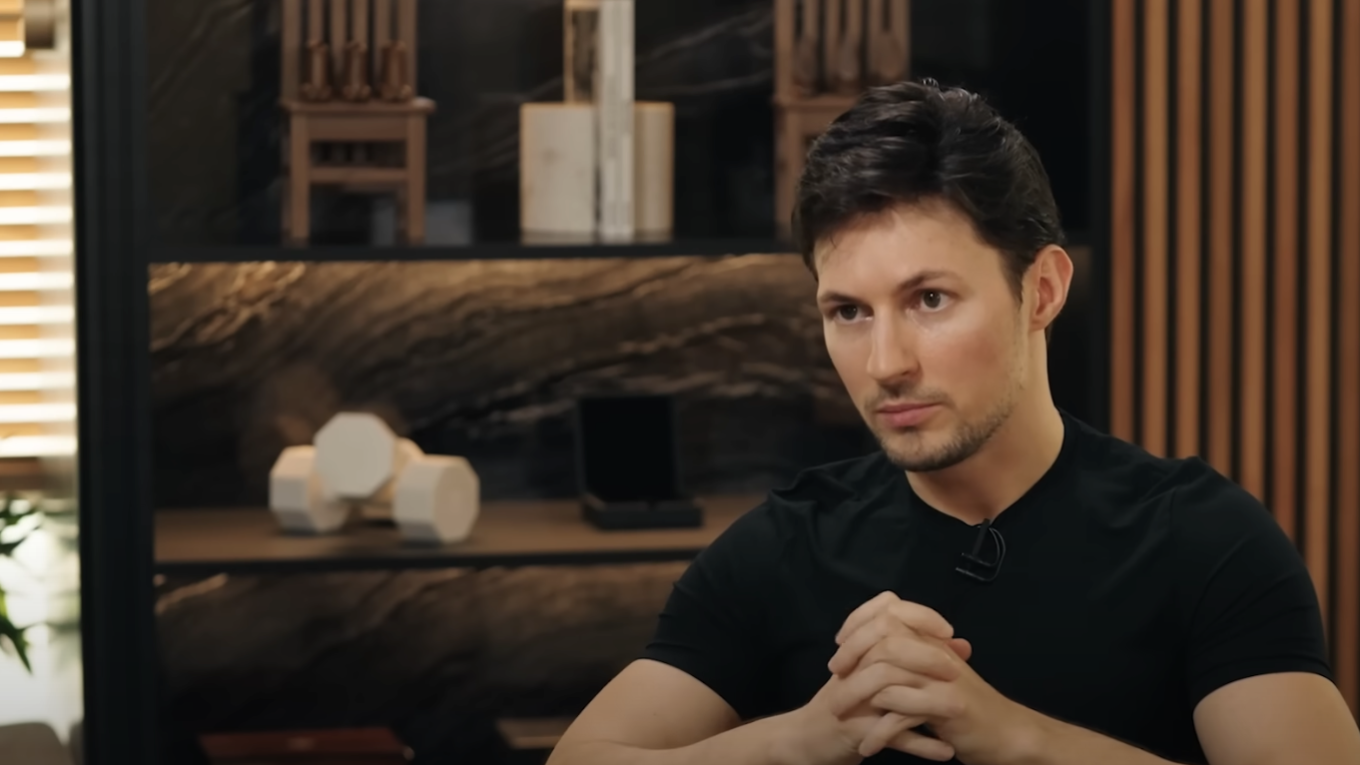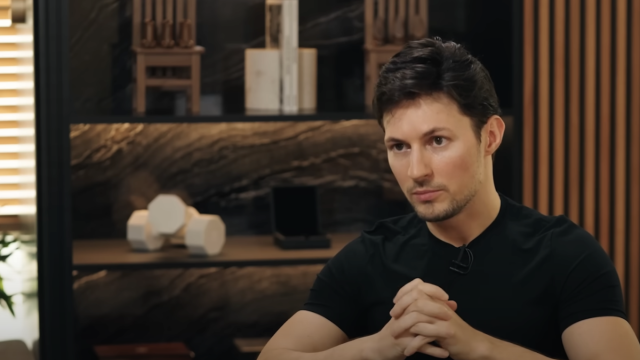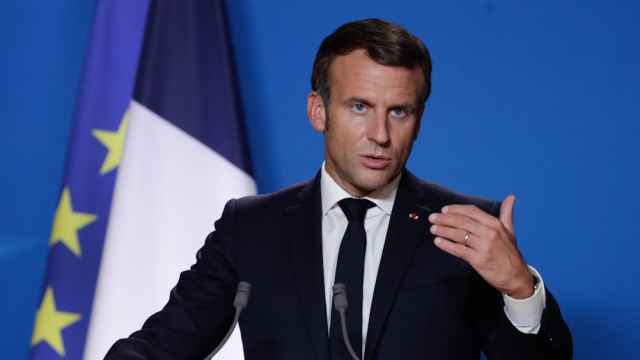French-Russian tech billionaire Pavel Durov is to appear in court on Sunday after being arrested at a Paris airport for offenses related to his popular Telegram messaging app, sources told AFP.
France had reportedly issued an arrest warrant for Durov in a preliminary investigation into alleged offenses including fraud, drug trafficking, cyberbullying, organized crime and promotion of terrorism.
The detention has sparked a debate over Telegram's lax content moderation policies and whether France has the right to crack down on what some observers see as free speech in the name of law enforcement and anti-terrorism efforts.
Telegram allows groups of up to 200,000 members, which has led to accusations that it makes it easier for false information to spread virally, as well as for users to disseminate neo-Nazi, pedophilic, conspiratorial and terrorist content.
By basing itself in the United Arab Emirates, which Durov praised for its business environment and "neutrality," Telegram has shielded itself from moderation laws, he said.
The Moscow Times has collected reactions from Russian and Western officials and public figures to Durov’s detention in France:
Russian Foreign Ministry
“In response to the information about Durov's detention, the Russian Embassy in France immediately took the necessary steps to clarify the situation regarding the Russian citizen, despite the absence of any request from the businessman's [Durov’s] representatives,” the ministry told the state-run TASS news agency.
Russian Foreign Ministry spokeswoman Maria Zakharova
"We all know very well how liberal democracies — or rather, liberal dictatorships — handle things when it suits or benefits them. This is not the first instance. Previous cases have shown the worst side of the West's so-called championing of human rights." Zakharova said in an interview to the state broadcaster Rossiya 24.
She pointed to what she sees as double standards from Western organizations when Russia pressured Telegram to cooperate and then blocked Telegram in 2018 for its alleged refusal to provide the Federal Security Service (FSB) with backdoor access to encrypted messages.
"It was a campaign to pressure Russia, primarily to discredit it... Now, will they start a similar campaign in support of Telegram and its creator and founder?” Zakharova said.
Former Russian President Dmitry Medvedev
“[Durov] believed that his biggest problems were in Russia, so he left, eventually obtaining citizenship or residency in other countries. He wanted to be a brilliant ‘citizen of the world,’ living well without a homeland,” Medvedev said in a post on Telegram.
“He miscalculated. To all our common enemies now, he is Russian — and therefore unpredictable and dangerous. Of different blood… Durov needs to finally understand that one does not choose their homeland, just as one does not choose the times they live in,” he added.
Deputy State Duma Speaker Vladislav Davankov
“He needs to be rescued now…His arrest may have political motives and could be a tool to gain access to personal information of Telegram users. This must not be allowed,” Davankov said on Telegram.
“The world knows no messaging platform where such violations don't occur. Yet, for some reason, no one is arresting or imprisoning their owners. And this should not happen now,” said Davankov, who took part in a protest against Durov’s detention outside the French Embassy in Moscow.
“I urge Russian Foreign Minister Sergey Lavrov to call on the French authorities to release Pavel Durov from custody,” he added.
Exiled opposition figure and former Navalny aide Ivan Zhdanov
“The accusations of drug trafficking, pedophilia, and fraud seem weak. This suggests that his arrest is indeed connected to his refusal to cooperate with the authorities. Such charges appear unconvincing and poorly constructed,” Zhdanov said.
“If Durov was aware that there was an ongoing case against him in France and still decided to fly there, it’s possible he was heading there to negotiate. There’s a chance that he might not even be formally arrested, and the charges could eventually be dropped…The loudest voices defending Durov are coming from Russian propaganda. This is intriguing,” he said.
Member of Team Navalny's investigations department Georgy Alburov
“Durov's arrest, aside from being incredibly unjust based on the current charges (it’s clear that Durov isn’t involved in terrorism or arms trafficking), is also a significant blow to freedom of speech. Just remember how Telegram resisted being blocked in Russia, how it developed its own tools to bypass those blocks,” Alburov said.
“Freedom for Pavel Durov,” he added.
Exiled U.S. whistleblower Edward Snowden
“The arrest of Durov is an assault on the basic human rights of speech and association. I am surprised and deeply saddened that [French President] Emmanuel Macron has descended to the level of taking hostages as a means for gaining access to private communications. It lowers not only France, but the world,” said Snowden, who became a naturalized Russian citizen in 2022.
Tech billionaire Elon Musk
“POV: It’s 2030 in Europe and you’re being executed for liking a meme,” Musk posted on X (formerly Twitter), referring to Durov’s detention.
Former Fox News host Tucker Carlson
“Pavel Durov left Russia when the government tried to control his social media company, Telegram. But in the end, it wasn’t Putin who arrested him for allowing the public to exercise free speech. It was a western country, a Biden administration ally and enthusiastic NATO member, that locked him away,” said Carlson, who interviewed Durov earlier this year.
AFP contributed reporting.
A Message from The Moscow Times:
Dear readers,
We are facing unprecedented challenges. Russia's Prosecutor General's Office has designated The Moscow Times as an "undesirable" organization, criminalizing our work and putting our staff at risk of prosecution. This follows our earlier unjust labeling as a "foreign agent."
These actions are direct attempts to silence independent journalism in Russia. The authorities claim our work "discredits the decisions of the Russian leadership." We see things differently: we strive to provide accurate, unbiased reporting on Russia.
We, the journalists of The Moscow Times, refuse to be silenced. But to continue our work, we need your help.
Your support, no matter how small, makes a world of difference. If you can, please support us monthly starting from just $2. It's quick to set up, and every contribution makes a significant impact.
By supporting The Moscow Times, you're defending open, independent journalism in the face of repression. Thank you for standing with us.
Remind me later.







